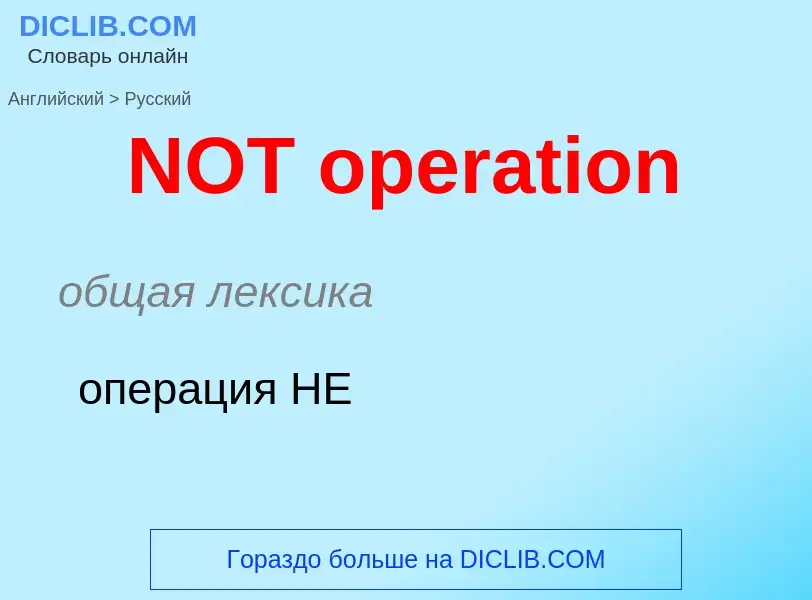Translation and analysis of words by ChatGPT artificial intelligence
On this page you can get a detailed analysis of a word or phrase, produced by the best artificial intelligence technology to date:
- how the word is used
- frequency of use
- it is used more often in oral or written speech
- word translation options
- usage examples (several phrases with translation)
- etymology
NOT operation - translation to russian
общая лексика
операция НЕ
[ni'geit]
общая лексика
отрицать
сбросить
глагол
общая лексика
отрицать существование или истинность (чего-л.)
отвергать
сводить на нет
опровергать
отрицать
синоним
Definition
---
философская категория, выражающая связь двух последовательных стадий (состояний) развивающегося объекта; отрицание - условие изменения объекта, при котором некоторые элементы не просто уничтожаются, но сохраняются в новом качестве (см. Снятие).
---
логический эквивалент оборота "неверно, что..." или просто частицы "не"; операция, формализующая логические свойства этих слов.
Wikipedia
In logic, negation, also called the logical complement, is an operation that takes a proposition to another proposition "not ", standing for " is not true", written , or . It is interpreted intuitively as being true when is false, and false when is true. Negation is thus a unary logical connective. It may be applied as an operation on notions, propositions, truth values, or semantic values more generally. In classical logic, negation is normally identified with the truth function that takes truth to falsity (and vice versa). In intuitionistic logic, according to the Brouwer–Heyting–Kolmogorov interpretation, the negation of a proposition is the proposition whose proofs are the refutations of .

